India's Supreme Court Wednesday reversed a landmark 2009 ruling that decriminalized gay sex, reinstating a colonial law that prohibits "carnal intercourse against the order of nature with man, woman, or animal," reports The New York Times. In the wake of the decision, same-sex sexual conduct will once again be punishable by up to 10 years in prison in India.
The nation's highest court declared that the 2009 decision, which deemed Section 377 of the Indian Penal Code unconstitutional, was an overreach by the court. The Supreme Court determined that only Parliament had the power to repeal the antisodomy law, which was enacted by the British in 1861 when India was a colony of the United Kingdom.
LGBT advocates in India and abroad expressed outrage and exasperation at the decision.
"No doubt about it, today's ruling is a setback," said Sapna Pandya, president of Khush D.C., a support group based in Washington, D.C., for LGBT South Asians. "But it doesn't take away from the fact that the recent past has seen promise for LGBTQ rights in not just India but also other South Asian countries, including Pakistan, Bangladesh, and Nepal. We stand in solidarity with the brave activists in South Asia and worldwide who have taken such huge leaps in recent years and know they will continue the fight for equality in spite of the disappointment we all feel today."
The Human Rights Campaign also condemned the ruling, claiming that the Supreme Court's decision "recriminalizes love."
"It is incomprehensible that a court of law would take the side of discrimination against LGBT citizens," said HRC vice president and chief foundation officer Jeff Krehely in a statement. "Criminalizing LGBT relationships leads to dangerous situations, not just for committed couples but also for LGBT youth, who today received a deeply harmful message that they are less than equal. We call on fair-minded people around the world to show solidarity with India's LGBT community at this critical moment."
While LGBT activists stateside and in India lambasted the decision, right-wingers in the U.S. applauded the ruling. Bryan Fischer, director of issues analysis for the antigay American Family Association and a conservative radio pundit claimed the court "upheld a law passed by the elected representatives of the people" and called the ruling "entirely right," while wishing that the U.S. Supreme Court would follow suit. "Homosexual conduct should be contrary to public policy everywhere," Fischer tweeted.
Activists in India took to the streets -- and the media -- after the ruling came down Wednesday. See photos from the pro-LGBT demonstrations below.

Akshay Khanna of Voices Against 377 talks with media on the Supreme Court lawn in New Delhi Wednesday.

Indian gay rights activists take part in a protest against the Supreme Court ruling reinstating a ban on gay sex.

An Indian LGBT rights activist shouts slogans during a protest against the Supreme Court ruling.

An Indian LGBT rights activist prepares a poster during a Bangalore protest against the Supreme Court ruling reinstating a ban on gay sex.

An Indian LGBT activist in Kolkata displays her opposition to the colonial-era Section 337 of the Indian Penal Code, which outlaws "carnal intercourse against the order of nature."

An LGBT activist in India calls for unity and support in Kolkata.

A protest in New Delhi Wednesday.
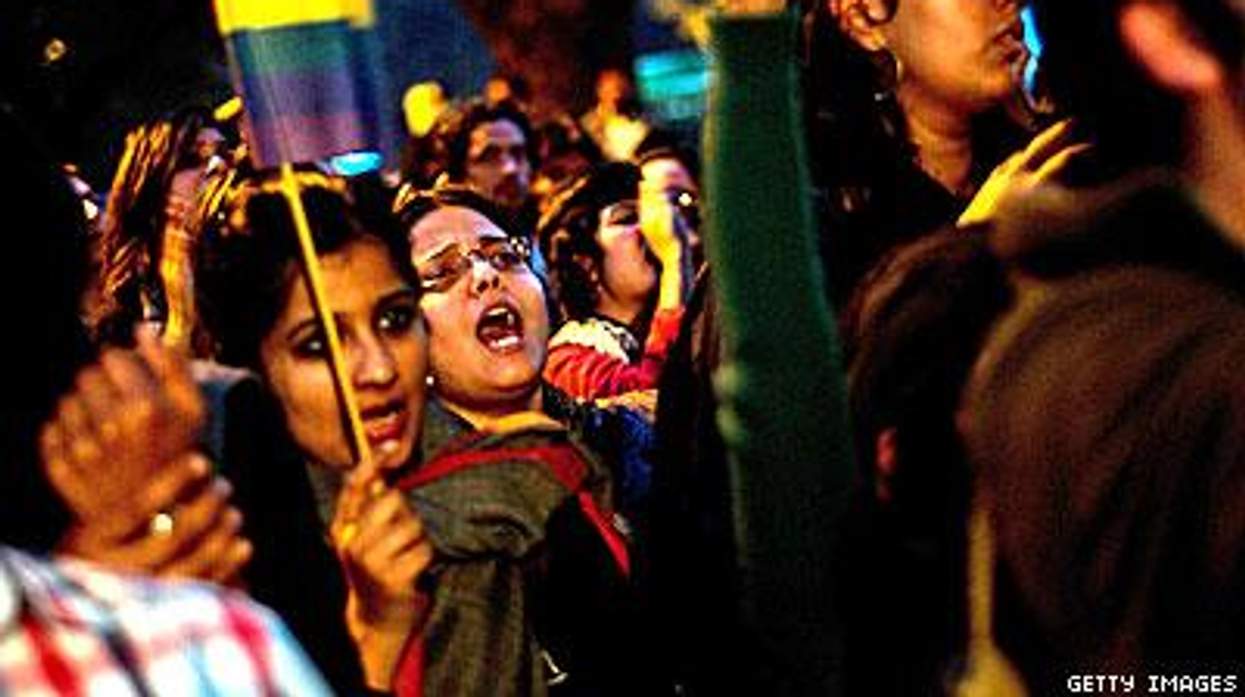

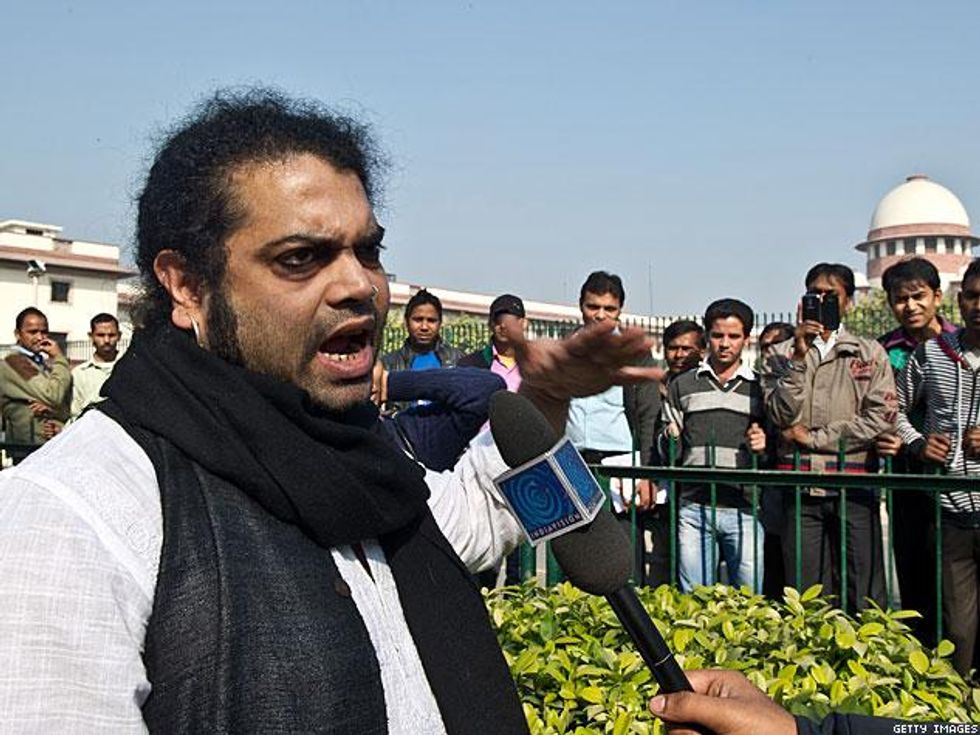
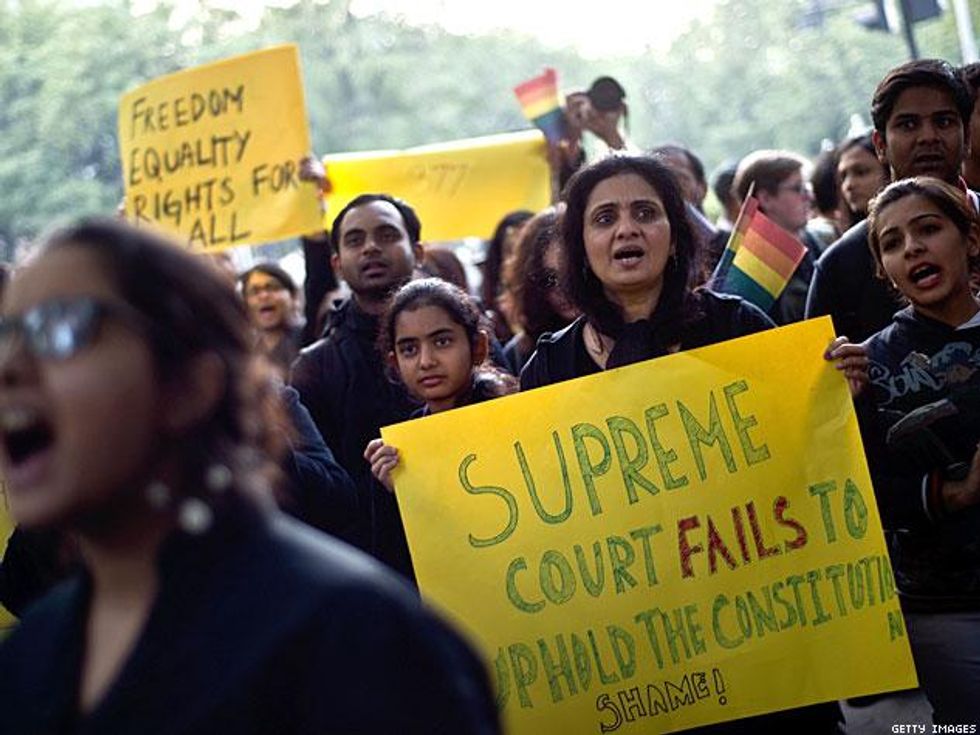
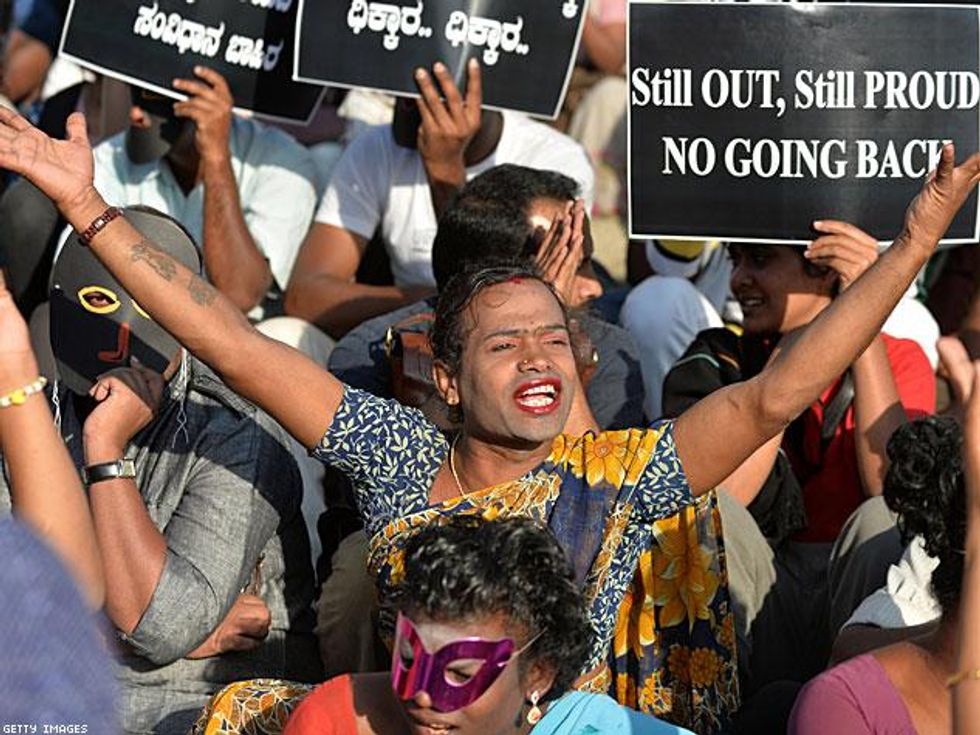
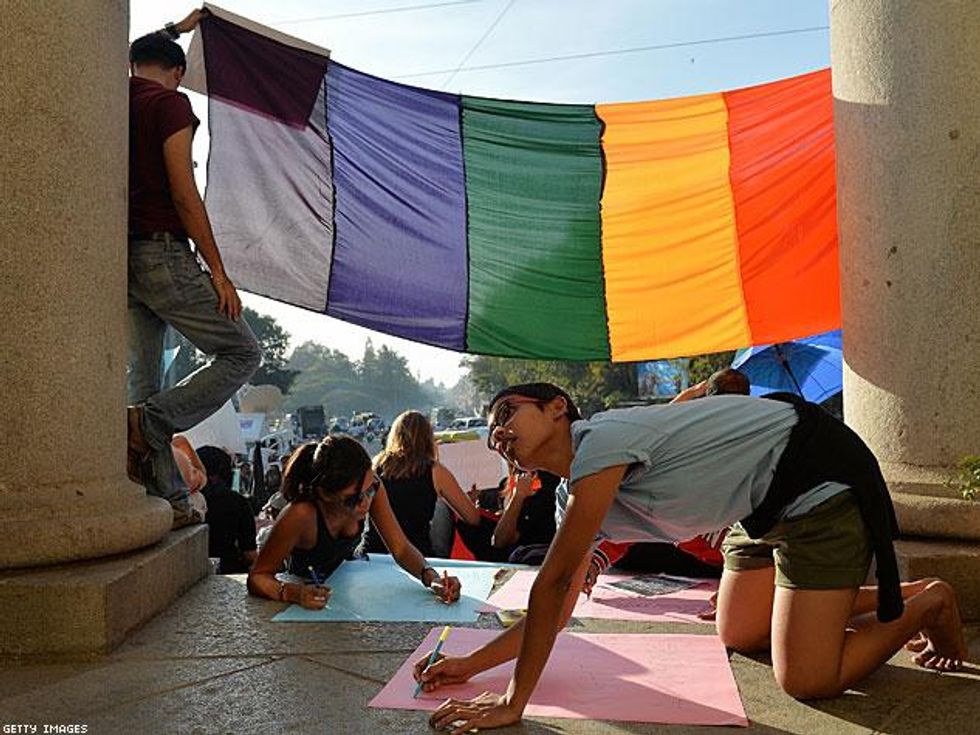
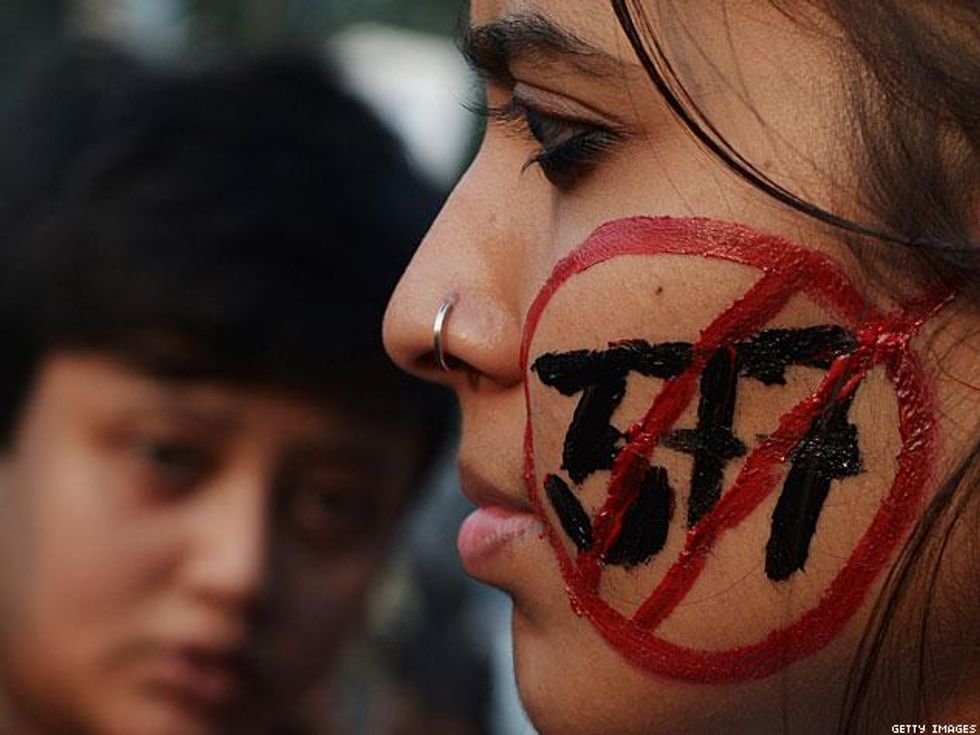
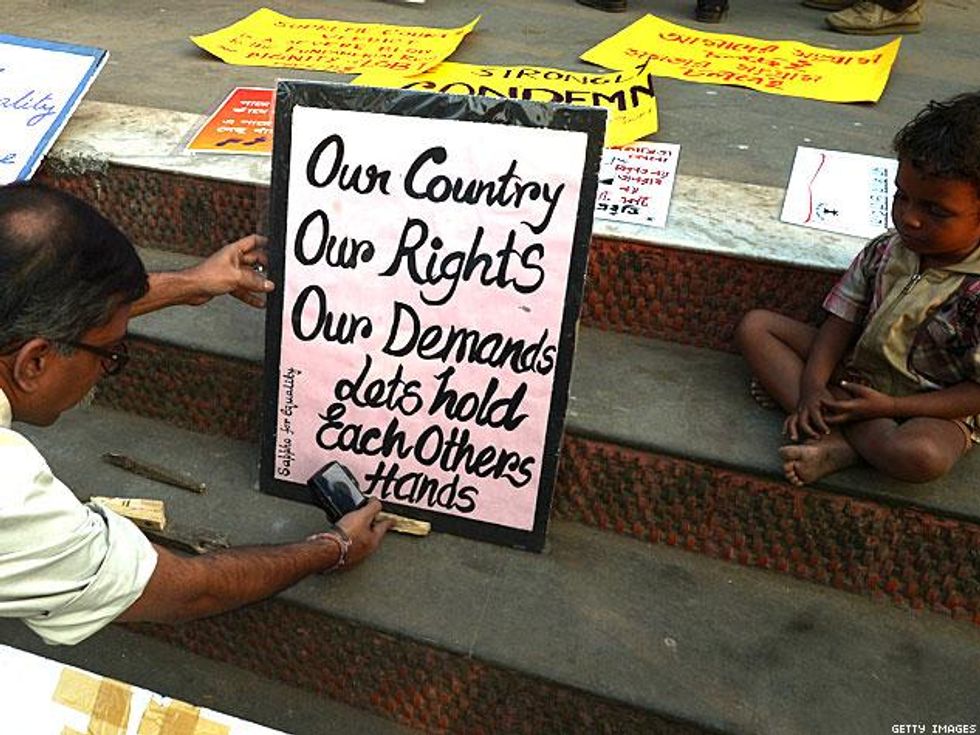
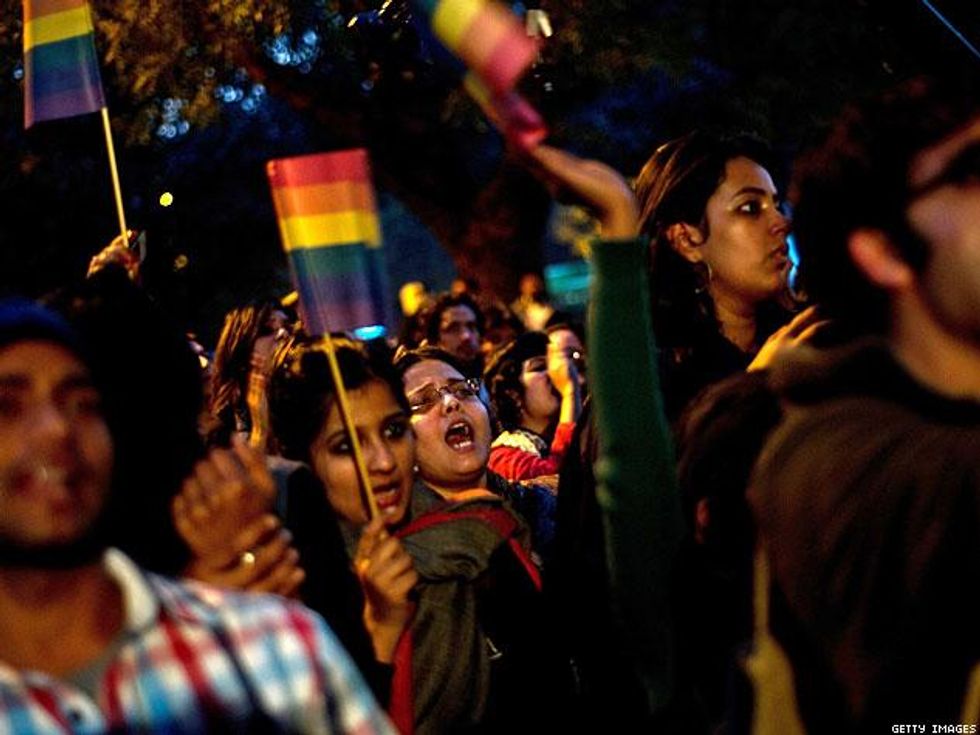



































































Charlie Kirk DID say stoning gay people was the 'perfect law' — and these other heinous quotes